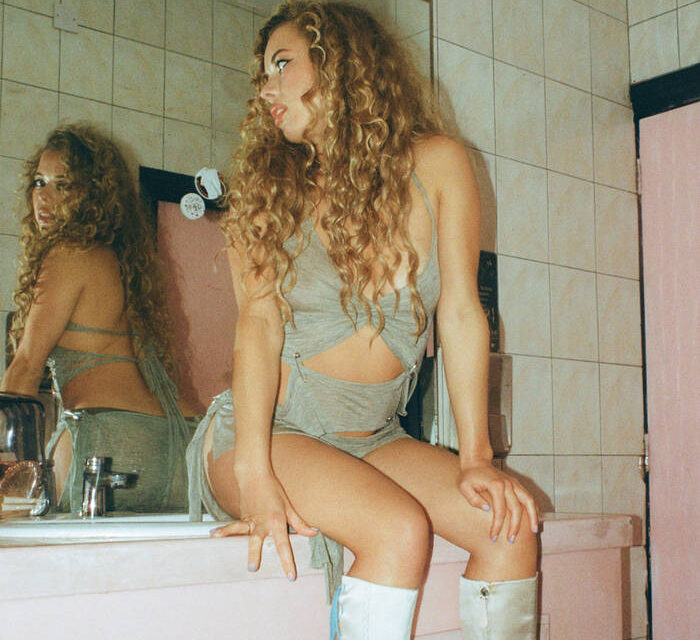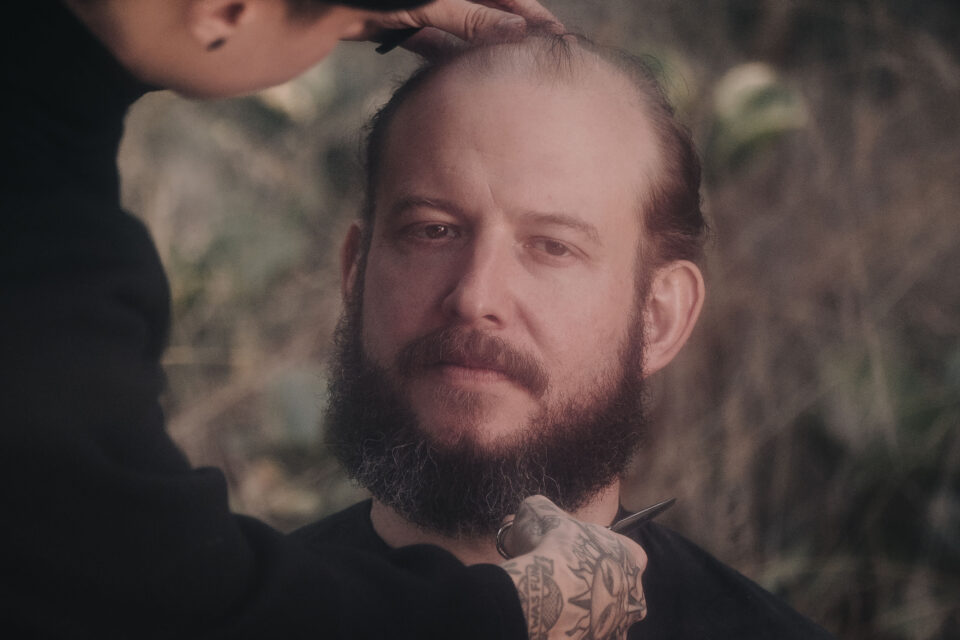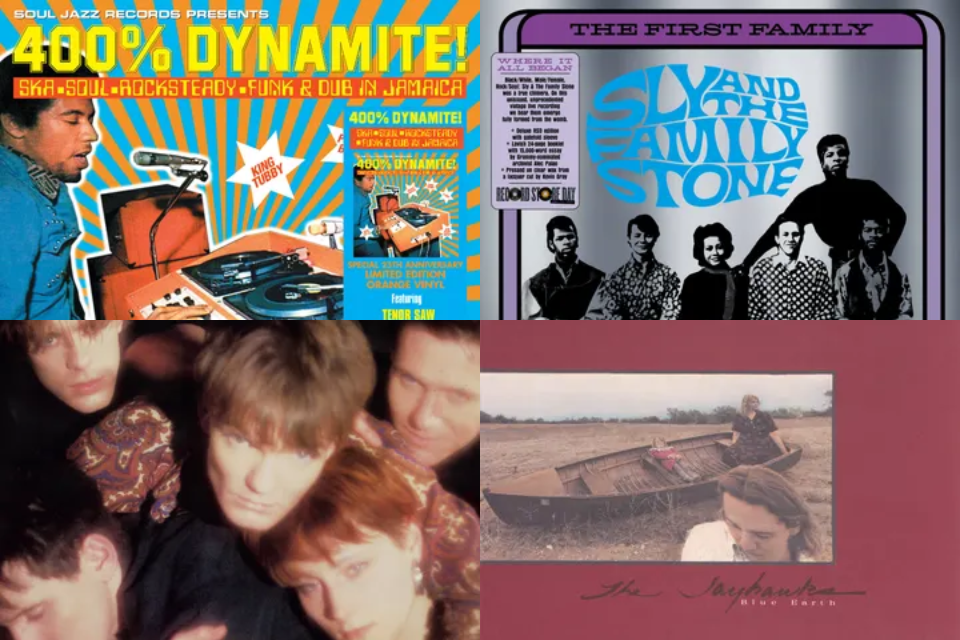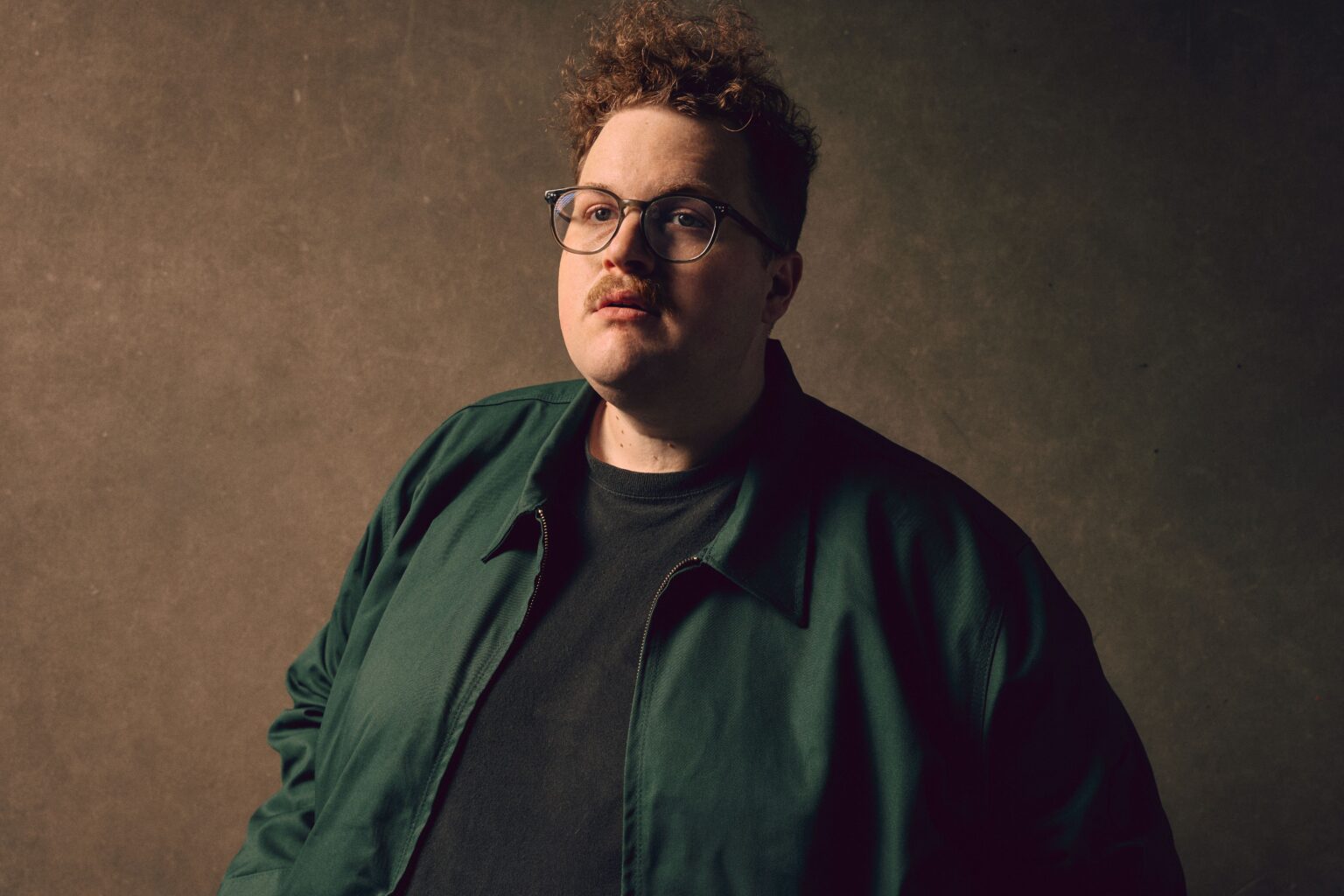British singer-songwriter and guitarist Nilüfer Yanya released her third LP, My Method Actor, in September of 2024 and it quickly made loads of reputed Best of the Year lists come December. Having covered Yanya for her second record, Painless, in 2022, I was eager to witness first-hand how the artist had developed in the time since then.
I found her live performances in Nashville (including a Sonic Cathedral session shared soon) to be consistent with her energy throughout 1:1 conversation in-person. That is to say, evident of an artist completely “in the pocket” and in her power at all times, but not unapproachably or arrogantly so. There was plenty of giggling between us, and she offered thoughtful pauses when answering questions for which she didn’t quite have an answer at the ready. But she’s unafraid of risks — like in melding her alternative rock affinity with her hot toddy of a voice, or simplifying the song structures to home in on one idea instead of many.
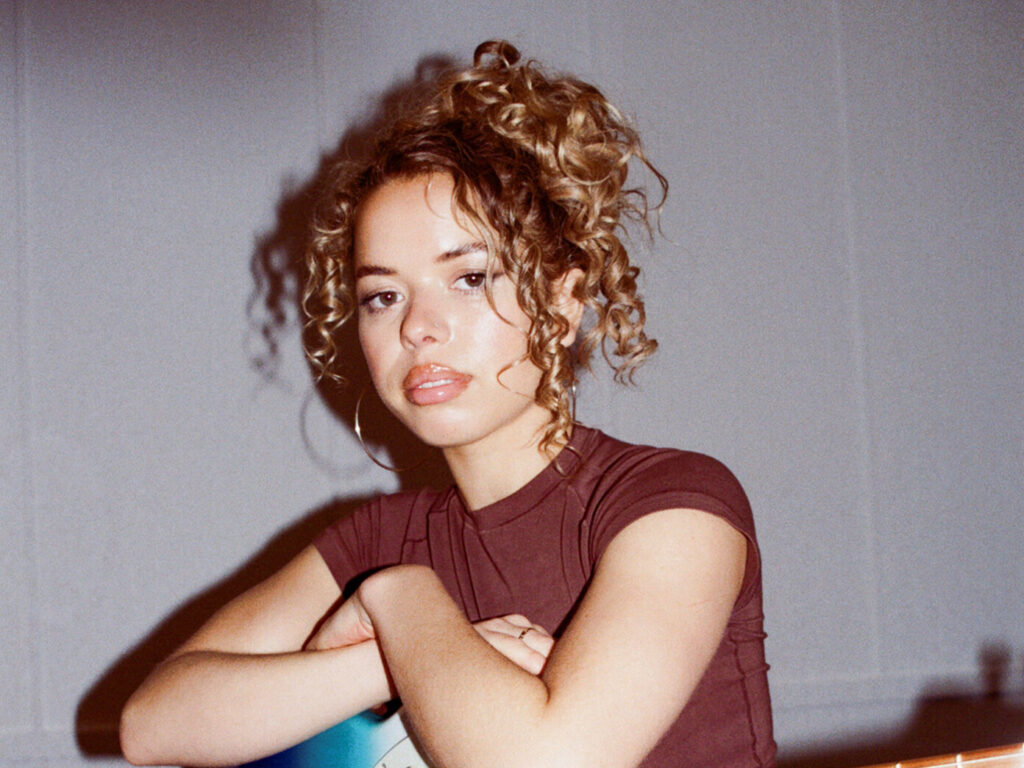
Overall, the impression I get from this artist on her third album cycle, and with the many benefits of an established musical partner in fellow guitarist and producer Will Archer, is that she’s cool and confident. Probably because she knows it’s working and it’s also authentically her. Hence the album title, referring to a style of acting wherein the performer empathizes with and essentially becomes their character. On-stage Yanya is the same as backstage or van or home base Yanya. And they are altogether (all, together) captivating.
Listen to our conversation from October and songs from My Method Actor here and on WNXP’s podcast channel.
On co-writer and producer Wilma Archer
Nilüfer Yanya: We were kind of rehearsing all summer for the tour and everything, so it’s been a bit of a process, but it’s trying to stay loyal to the record. Will [Archer] — who I made the record with and who produced the album, as well — he’s joined the band, so that’s made a big difference. I think having the extra guitars and somebody who’s also obsessed with the sound of the record really helps bring it to life. But otherwise, like my band, you have Alice, Jesse and Beth, and they’re like all like sick and like longtime members. So it was not difficult. It’s just like a process.
Celia Gregory: This is your third roundabout with Will, right? I mean, if you are partners in songwriting and production now, it feels like it’s very tried and true, this connection. Can you describe what it’s like working with him and then maybe even how he would describe working with you?
NY: Yeah, this is the third record we worked on together, but each one was in increasing capacity. So the first time we did like two songs and some skits together on my first record and then the second record, it was a lot more involved. Like 80% of it was like just us two. And then this record was different because we said from the beginning, “Let’s just work on it together.” So I think it says a lot about a story of friendship, trust, you know, everything that it kind of takes to get to a point to just want to work with one other person. I didn’t ever see that before. I didn’t really understand collaboration as a force, if that makes sense, till we made this album.
Efficiency in collaboration, i.e. “Binding”
CG: Does that mean that, like, backing up from if you had decided and agreed, “OK, we’re doing this thing together” when you knew you were writing a new record, was it you started sending him almost everything that came to mind, like voice notes, just fragments of stuff? How intertwined was it before you actually got into studio to lay down things?
NY: We just started doing sessions weekly or like a couple times a week and, honestly, Will had loads of musical ideas, so I was bouncing off of those lots of time. Yeah, we just sounded like random things and there was a lot of stuff that didn’t make it past a demo or past like finished writing. And it was kind of cool to work like that because we didn’t have, like, 20 songs. By the end, we had exactly what we had. You’re always on the go and you feel like every moment is kind of precious. So you don’t want to waste time on something if you feel like it’s not going to be what you want it to be. We had to cut off early.
CG: That’s nice. That’s the lean and mean. It’s not just like, “Let’s get a glut and then pick our favorites.” It’s like, “No, each one of these is going to be the strongest effort we have.”
NY: Yeah, do you know what, I’ve never had like loads by the end of a process, I’ve always had exactly what I have and maybe removed like one or two songs.
CG: Can you think of an example just what comes to mind because you collaborated so closely with well of you had the bones of the thing and then maybe describe the way he helped you flesh it out and you’re like, “Yes, that’s the thing. That’s what it needed.”
NY: Well, I feel like Will has the bones a lot of the time. He would present a really cool, like, guitar riff or drum part and then through me like coming off a melody and like, lyrics. Then we start to flesh out and I feel like that’s pretty much how all the songs happened. There’s one song called “Binding” where it felt a bit more like he had the verse riff. And then immediately I just felt like, “OK, this is what needs to happen in the chorus,” which was a nice feeling, We kind of work to each other’s strengths at the moment and…yeah, try not to waste time. I just feels like such a process to have arrived at this point in time. I feel like we’ve learned a lot from working together over the last five years.
The passage of time
CG: When I spoke to you before, it was about your 2022 record, Painless. And that came out after the two years that I think you described as just like, “Where did that go?” because of Covid and because of being the age that you were at the time. So two years on since then, it sounds like you emphasize a lot the efficiency, the not wasting time. Do you think that’s because you might have felt like you lost some?
NY: I don’t know. I guess maybe you always feel like you’ve lost time when you’re like, “Oh my God, how did I get to 29? What happened?!” [Laughs.] Maybe it’s not so much wasting time. It’s making sure you’re spending the time on the things that you really want to do, as opposed to, like, all the other things that you can also do. Because of so many things you can do — even in songwriting, music, life — I guess I’m trying to focus on things I want to do and songs I want to make.
CG: I think people take a lot longer to get to that conclusion. So kudos if you’re like, “Let me trim the fat. Let me know what the main thing is and follow that bliss,” even in a song.
NY: Exactly! In a song, as well. Because I think something I’ve gotten better at is honing in on one idea and stretching it out as opposed to throwing loads of things and feeling like it’s always incomplete and never good enough. Instead of, like, just giving it the confidence that maybe one idea deserves, and then you can see it reach its potential. And I feel like that’s how me and Will do it, anyway.
“Call It Love”
CG: When you just said that about one idea and sticking to it, sort of extending it, I thought immediately about the song you played [in our Sonic Cathedral], “Call It Love.” It’s almost hypnotic in its repeition.
NY: Yeah, it’s a loop.
CG: And then, lyrically, there’s so much impact the way you finish it. We’ve gotten so deep already. Do you want to talk about love versus shame? Because reading it after hearing you sing it, it hits like a ton of bricks.
NY: I’m curious what it means to you, that song. “Some call it love and some call it shame.”
CG: You’re turning it around on me! I mean, normally you wouldn’t think you would confuse the two. Except in hindsight. Was it love or was it shame?
NY: That’s how I translated it, as well. And I did have to translate it because it just sounded like a cool lyric when I wrote it!
CG: OK, so it wasn’t from your guts.
NY: Maybe it is. That’s the thing about writing. I was thinking, either love can come from a very real place. Or it can come from this place of, like, not the kindest way on yourself…from a very insecure place. You can also be ashamed of something that you really want.
Method acting
CG: I heard you say somewhere about the title and then also the sort of title track, you actually understanding more and naming a record this what method acting is and the idea of sort of becoming the character. Is that something you’ve always done…or is that something you sort of eased into over time as a performer?
NY: Yeah, I think the reason why I found it interesting — there’s a few reasons, but I feel like my life as myself and then my life as being somebody who makes music that people hear that you’re presenting to the world…they were already fused, but now I feel like I’ve kind of understood that, “OK, this is me. They’re both me. There’s no difference.” This is why I find it kind of tricky sometimes, being on stage, being off, like the sudden change. ‘Cause I don’t have, like, a character to step into. I guess when I’m writing about things, I am writing about my own experience more than anything. And method acting the idea behind it is that you’re not acting, which is kind of how I feel when I’m on stage. I’m not acting like I call it like for like a good show, if that makes sense. I just have to, like, sing the songs I’ve written and everything has to be real. And sometimes it makes me feel embarrassed because it’s like, I don’t have like a mask or like something I can step into, like some kind of costume.
CG: But then you feel like yourself, no matter what time of day and where you are.
NY: Yeah and I feel a bit confused because sometimes it’s like, maybe I’ve got it wrong. Maybe the music industry, maybe entertainment, it’s all about entertaining people. But I don’t feel like I have a grain of that inside of me.
CG: Well, that’s not to say your show and your music is not entertaining. You’re just saying you’re not affected in it. You are not putting on the singer hat or a guitarist hat. You are the same hanging out with your friends as you would be hanging out with a bunch of strangers that are paying to see your show.
NY: Yeah, I think so.
The video for “Like I Say (I runaway)”
CG: I was excited to see because the first single we got [“Like I Say (I runaway)”], we also got the video, that you’re still working with your sister when you do the visual elements, right?
NY: Yeah!
CG: And that video, I love the way that ends, too, because it feels like you’re definitely running away from something. But where you’re running to is sort of unclear. You just sort of end up by yourself. Care to explain the creative vision there? Does it does it lay over the song or not necessarily?
NY: It was just a cool way to express it. I think it was also a nice window into starting the releasing of the album because it’s like you’re running away but running towards like it’s kind of like, where to next? In the video, it was funny because it’s actually my boyfriend who’s the groom. So it was kind of upsetting to do that. But it’s make believe. I was running away and there was no like running into someone else’s arms. There was nothing clear. And I think it’s OK to, like, not know what it is that you [want], if there’s kind of a place you want to be. You just know something isn’t right and you can leave and you don’t have to know where you’re running to or where your next destination is going to be. I have never had any idea.
CG: You take the leap without knowing where you’re going to land.
NY: I just was thinking about the other day. I just don’t have a plan.
CG: #same
NY: [Laughs.] I don’t think I have a goal. Like I’m just going along with my life.
CG: Well, it’s working out wonderfully, at least creatively speaking, wouldn’t you say? To follow your bliss.
NY: Maybe I should have a goal.
CG: I don’t know. Releasing a new record and people loving it is a pretty great follow-through, even if you didn’t have that intention.
Vulnerability without guitar
CG: Is there any other song that you want to share something about that maybe as you’ve been performing, it’s taken on new meaning, or you were especially nervous that people would hear how vulnerable you were on a song?
NY: I guess a song called “Ready for Sun (touch).” I felt quite vulnerable to sing it because the lines are quite different to how I usually use my voice. So I do feel physically quite vulnerable and I’m not playing a lot of guitar in that song, as well, so I feel more vulnerable. I don’t really know what it’s about, but I think it’s about like [being] ready to feel the sun again on your skin, ready to come out of a place of protecting yourself and allowing yourself to be more exposed, I guess.
CG: Which is so interesting if you are feeling the most exposed when you perform it, because your guitar is sort of your armor.
NY: Yeah, yeah. No, it definitely is. And it’s like, it feels like my justification of, like, why I can do this in the first place. Because in my head I’m like, “Nobody wants to just hear me sing.” [Laughs.]
PJ Harvey superfan
CG: Another thing you told me last time we talked about Painless was that your sister and her CD collection, especially turn of the century pop-punk, inspired you. I don’t think everybody would assume that the through-line to this record started with, like, blink-182 is the band you cited. I’ve never forgotten that. Have you seen any rock bands on tour lately? Anything moving you particularly that might sound like your record or might not sound anything like the music that you make?
NY:. I saw PJ Harvey and I’m like a creepy superfan.
CG: Does she know?
NY: Well, I don’t know, because we did a cover of a song in our set and we had to get it, like, approved when I recorded the cover with Jazzi. Me and Jazzi did a version we released. So I feel like I’m a bit of a stalker. [Laughs.]
CG: I’m sure she’s very flattered.
NY: I don’t know, she’s probably just doing her thing. She’s an icon.

